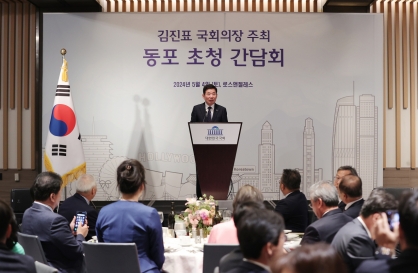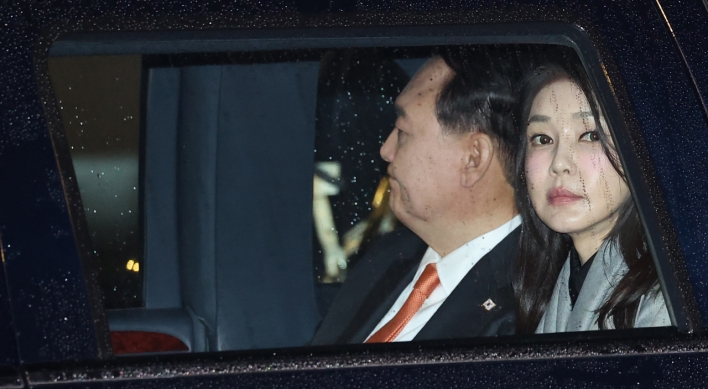Remind me, again, why we care about what the United Nations thinks?
That question isn’t prompted by the recent exertions of the Palestinians to achieve the facsimile of independence by asking the U.N. to tell them they are independent. Palestinians deserve actual independence, as opposed to symbolic independence and actual misery, which is what the U.N. is selling.
Other stateless peoples deserve independence as well, even those who don’t have Jewish adversaries, without whom the Palestinians would be just another unhappy group of Muslims in search of a token measure of political satisfaction. In other words, they would be Kurds, except less numerous and less subjugated. Oh, if the Kurds only had Israel as an enemy, the U.N. might acknowledge their existence!
It is the murder of a specific Kurd, in fact, that prompts me to ask why we should care about what the U.N. thinks. A Kurdish leader named Mishaal al-Tammo was killed Oct. 7 by masked gunmen in the Syrian city of Qamishli, which, in a world of truth and justice, would be part of an independent Kurdistan (along with the large Kurdish stretches of Iran, Iraq and Turkey). Tammo was a significant opposition figure in Syria, whose government’s main achievement of late is murdering opposition figures, as well as murdering people who attend the funerals of murdered opposition figures. Syrian security forces reportedly fired into the crowd at Tammo’s funeral, killing at least six people.
A Syrian propagandist might note that six killings at a ceremony attended by 50,000 mourners is a very small number proportionally, and is therefore a testament to the restraint of Syrian security forces. A Syrian democracy activist might note that Tammo is one of at least 2,900 Syrians murdered since the beginning of the uprising.
It was this very large number of people murdered by the regime of President Bashar al-Assad that spurred European countries to push for a condemnatory resolution at the U.N. Security Council shortly before Tammo’s murder. The resolution was worded rather mildly. References to sanctions had been watered down to make it more tolerable to China and Russia ― which still found it intolerable, and vetoed it.
That was the first time Beijing and Moscow joined together to veto a Security Council resolution since 2008, when they were similarly offended by a resolution calling for sanctions against the government of Zimbabwe for its atrocious human-rights record.
Which brings us to the utter worthlessness of the U.N. as an arbiter of right and wrong. A distressingly large number of governments represented at the U.N. rule without the consent of their people. China and Russia, each with veto power at the Security Council, are committed to protecting anti-democratic regimes around the globe for reasons of basic self-preservation. Just as the 22 states that comprise the Arab League look after Palestinian interests at the U.N., China and Russia look after the interests of autocrats and fascists. (There is significant overlap, of course, between the Arab League and the more informally organized but still potent League of Autocrats.)
What’s most maddening about the U.N. is that even its democratic members sometimes crumple before the diktats of autocrats. South Africa ― home of Nelson Mandela! ― abstained on the Syria vote. South Africa, in fact, is becoming an expert at caving to China, its largest trading partner. On Oct.4, the Dalai Lama said that he had canceled a trip to South Africa, which he had hoped to visit to celebrate Archbishop Desmond Tutu’s 80th birthday, because its government “seems to find it inconvenient to issue a visa.” China’s influence was clear.
In a talk a few days later, the Dalai Lama noted that “for the communist totalitarian system,” hypocrisy and “telling lies has unfortunately become part of their lives.”
The totalitarian reliance on hypocrisy and lies infected the U.N. a long time ago. The American ambassador to the U.N., Susan Rice, who represents an administration that tends to give the U.N. the benefit of the doubt, was so appalled by the double veto that she stormed out of the Security Council meeting and denounced China and Russia in the most refreshingly undiplomatic way. She called them out as countries that “would rather sell arms to the Syrian regime than stand with the Syrian people.” She also said: “The United States is outraged that this council has utterly failed to address an urgent moral challenge and a growing threat to regional peace and security.”
Outraged, yes. Surprised? At this late stage, I hope not.
Congress is now considering reducing the U.S. foreign aid budget. Before it cuts worthy programs serving the poor, dispossessed and disenfranchised, perhaps it should consider scaling back funding to an organization that protects dictators who make dispossession and disenfranchisement the cornerstones of their rule.
By Jeffrey Goldberg
Jeffrey Goldberg is a Bloomberg View columnist and a national correspondent for The Atlantic. The opinions expressed are his own. ― Ed.
(Bloomberg)
That question isn’t prompted by the recent exertions of the Palestinians to achieve the facsimile of independence by asking the U.N. to tell them they are independent. Palestinians deserve actual independence, as opposed to symbolic independence and actual misery, which is what the U.N. is selling.
Other stateless peoples deserve independence as well, even those who don’t have Jewish adversaries, without whom the Palestinians would be just another unhappy group of Muslims in search of a token measure of political satisfaction. In other words, they would be Kurds, except less numerous and less subjugated. Oh, if the Kurds only had Israel as an enemy, the U.N. might acknowledge their existence!
It is the murder of a specific Kurd, in fact, that prompts me to ask why we should care about what the U.N. thinks. A Kurdish leader named Mishaal al-Tammo was killed Oct. 7 by masked gunmen in the Syrian city of Qamishli, which, in a world of truth and justice, would be part of an independent Kurdistan (along with the large Kurdish stretches of Iran, Iraq and Turkey). Tammo was a significant opposition figure in Syria, whose government’s main achievement of late is murdering opposition figures, as well as murdering people who attend the funerals of murdered opposition figures. Syrian security forces reportedly fired into the crowd at Tammo’s funeral, killing at least six people.
A Syrian propagandist might note that six killings at a ceremony attended by 50,000 mourners is a very small number proportionally, and is therefore a testament to the restraint of Syrian security forces. A Syrian democracy activist might note that Tammo is one of at least 2,900 Syrians murdered since the beginning of the uprising.
It was this very large number of people murdered by the regime of President Bashar al-Assad that spurred European countries to push for a condemnatory resolution at the U.N. Security Council shortly before Tammo’s murder. The resolution was worded rather mildly. References to sanctions had been watered down to make it more tolerable to China and Russia ― which still found it intolerable, and vetoed it.
That was the first time Beijing and Moscow joined together to veto a Security Council resolution since 2008, when they were similarly offended by a resolution calling for sanctions against the government of Zimbabwe for its atrocious human-rights record.
Which brings us to the utter worthlessness of the U.N. as an arbiter of right and wrong. A distressingly large number of governments represented at the U.N. rule without the consent of their people. China and Russia, each with veto power at the Security Council, are committed to protecting anti-democratic regimes around the globe for reasons of basic self-preservation. Just as the 22 states that comprise the Arab League look after Palestinian interests at the U.N., China and Russia look after the interests of autocrats and fascists. (There is significant overlap, of course, between the Arab League and the more informally organized but still potent League of Autocrats.)
What’s most maddening about the U.N. is that even its democratic members sometimes crumple before the diktats of autocrats. South Africa ― home of Nelson Mandela! ― abstained on the Syria vote. South Africa, in fact, is becoming an expert at caving to China, its largest trading partner. On Oct.4, the Dalai Lama said that he had canceled a trip to South Africa, which he had hoped to visit to celebrate Archbishop Desmond Tutu’s 80th birthday, because its government “seems to find it inconvenient to issue a visa.” China’s influence was clear.
In a talk a few days later, the Dalai Lama noted that “for the communist totalitarian system,” hypocrisy and “telling lies has unfortunately become part of their lives.”
The totalitarian reliance on hypocrisy and lies infected the U.N. a long time ago. The American ambassador to the U.N., Susan Rice, who represents an administration that tends to give the U.N. the benefit of the doubt, was so appalled by the double veto that she stormed out of the Security Council meeting and denounced China and Russia in the most refreshingly undiplomatic way. She called them out as countries that “would rather sell arms to the Syrian regime than stand with the Syrian people.” She also said: “The United States is outraged that this council has utterly failed to address an urgent moral challenge and a growing threat to regional peace and security.”
Outraged, yes. Surprised? At this late stage, I hope not.
Congress is now considering reducing the U.S. foreign aid budget. Before it cuts worthy programs serving the poor, dispossessed and disenfranchised, perhaps it should consider scaling back funding to an organization that protects dictators who make dispossession and disenfranchisement the cornerstones of their rule.
By Jeffrey Goldberg
Jeffrey Goldberg is a Bloomberg View columnist and a national correspondent for The Atlantic. The opinions expressed are his own. ― Ed.
(Bloomberg)



![[AtoZ Korean Mind] Does your job define who you are? Should it?](http://res.heraldm.com/phpwas/restmb_idxmake.php?idx=644&simg=/content/image/2024/05/06/20240506050099_0.jpg&u=)














